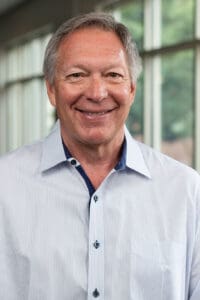MANHEIM, Pa. — In order to make good decisions, the starting point is to confront your desire in a manner that seeks the interests of God and other people over the interests of self. It seems rather simple, yet human proneness to sin and our uncanny inclination toward self-deception often prevents us from answering this question appropriately. Fundamentally, the sinful condition of the human heart is about disordered desires. We do not naturally desire the right things, and thus, we do not naturally approach this proposition in a godly way. Our desires must be shaped by God’s Word and God’s Spirit, over the course of time, so that we can answer this question in a godly way.

Tragically, sin and self-deception have brought about the tragic downfall of some of our most notable leaders. Any one of us could name multiple names of Christian leaders we have admired and been helped by who have, in the past few years, been removed from their positions of leadership and lost all credibility because of credible allegations of serious sin and abuses of power.
Conversely, we can only wonder how many potential leaders have forfeited a life of extraordinary impact because their fear (essentially their desire to avoid failure, loss, or embarrassment) steered them away from healthy risks. Like the lazy servant described in Matthew 25, they’ve buried the treasures God trusted to their care in fear of what they might lose. It’s difficult to name names here because we just don’t know the things that could have happened, but didn’t. There’s no story of impact to tell, and therefore no would-be protagonist to speak of.
~ ~ ~
We know of no foolproof procedures or formulas to guarantee you will make the right use of your desires as you evaluate any given risk-based decision. But here are a few principles and practices that can help you deal with the first proposition, “What would you like?” in a healthy fashion.
Dealing with Desire
First, you must acknowledge your vulnerability. On one hand, there may be times when you simply allow your fears or lack of confidence in God’s sovereignty and love to hold you back from risks that you really ought to consider taking. Yet on the other, no matter what you have achieved for the kingdom of God or how many others you have encouraged, led, or otherwise drawn nearer to God – whether you are the smartest person in the room, the most gifted communicator, the richest, whether you’re a recognized expert in some area, the most well-connected, or the person everyone else goes to for advice – you are really not that special, and are certainly no less immune to sinful desires and behavior than anyone else.

In light of that, you can next present your desires to God. Lay them out before him. Subject them to honest prayer. The Psalmist models this for us: “Search me, O God, and know my heart; test me and know my anxious thoughts. Point out anything in me that offends you, and lead me along the path of everlasting life” (Psalm 139:23,24 NLT).
Paul encourages us similarly in Philippians 4: 6-8, and challenges us to focus our thoughts and desires on goodness. “Don’t worry about anything; instead, pray about everything. Tell God what you need, and thank him for all he has done. Then you will experience God’s peace, which exceeds anything we can understand. His peace will guard your hearts and minds as you live in Christ Jesus. And now, dear brothers and sisters, one final thing. Fix your thoughts on what is true, and honorable, and right, and pure, and lovely, and admirable. Think about things that are excellent and worthy of praise” (NLT).
True, honorable, right, pure, lovely, admirable, excellent, praiseworthy. Treat each of those words as a standard by which to evaluate your desires pertaining to any risk-based decision. That’s quite a gauntlet to run.
Third, we suggest you momentarily adopt the voice of a cynic. What we mean by this is to take a good look in the mirror and argue against the virtue of each of your desires and each of the risks under consideration. A cynic believes that only selfishness drives human actions. We’re not cynics, but we see value in taking the position of a cynic, from time to time, as a tool for making wise decisions. In hearing your desires, designs, and justifications, the cynic poses hard questions and accuses your potential fears and self-interests.
You’re just afraid.
You just want more money for yourself.
You’re just trying to seduce her.
You just want to feel important.
You just have to be in charge.
(You get the picture).
We know this sounds harsh, and we don’t recommend this approach if you are prone to self-loathing or depression. But if you can honestly withstand the voice of the cynic, you’ll minimize the likelihood of acting in self-interest.
Finally, enlist the aid of others. Proverbs 22:15 states, “Plans fail for lack of counsel, but with many advisors they succeed.” If you are reluctant or feel you cannot let anyone else into what you are thinking, that in itself is a red flag that you may be on the wrong track. Invite that person (or those persons) to grill you against the standard set forth in Philippians 4, or to play the cynic, with respect to your thoughts and desires. Whenever you are tempted to deal with a risk-based decision privately or secretly, that may be a warning sign that you are about to act foolishly.
Excerpt from “What Was I Thinking? How to Make Better Decisions So You Can Live and Lead with Confidence”
David Ashcraft is the senior pastor of LCBC (Lives Changed By Christ) Church in Manheim, Pennsylvania, which has grown from one location with a weekly attendance of 150 people and a staff of one to 18 locations across the state of Pennsylvania and a combined average weekly attendance of over 19,000 and a staff of over 280; and Rob Skacel is a licensed psychologist and founder of True Edge Performance Solutions, where he and his team provide leadership consulting services to nearly 200 organizations and their leaders, in a variety of industry sectors such as manufacturing, professional services, health care, agribusiness, ministry, construction, education, non-profit and trade associations.